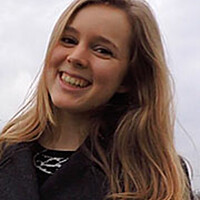Why Florida pulled a mosque as a polling site
Loading...
Some voters in Florida have cast their ballots in a mosque since 2010, but this year, the site in Palm Beach County proved too contentious.
Islam differs from other religions present in the United States in eliciting fearful and polarizing responses, as the county has reassigned voters from an Islamic center while leaving several churches and synagogues open for polling.
Elections Supervisor Susan Bucher decided to move the polling place from the Islamic Center of Boca Raton to a city library after receiving calls warning that some locals planned to "impede voting and maybe even call in a bomb threat to have the location evacuated on Election Day,” she wrote in a letter to My Palm Beach Post.
The county's voters will be assigned to about 80 churches and five synagogues or Jewish centers, in addition to schools and government buildings, the Associated Press reported. Last week, the sole mosque on the list was removed as a voting site for the upcoming August primary and November general elections after the county elections board received about 50 complaints, including threats of violence.
The Islamic center's leader had expressed enthusiasm about using the reception hall as a polling place.
"We were very happy to serve the community," Bassem Alhalabi, president of the Islamic Center told WPTV Monday, describing the active role the mosque plays in neighborhood, serving as a hurricane shelter, feeding the homeless, and working with the juvenile justice department. “I want to take personal time and invite [visitors] to the center and show them that they will be comfortable."
The Family Florida Association, whose slogan is "defending American values," supported Bucher's decision, arguing that using the mosque as a polling place would have made some voters uncomfortable and hurt turnout, which would be "unfair to voters and people seeking public office," according to a statement.
Mr. Alhalabi said he understands personally the feelings associated with walking through the doors of an unfamiliar place of worship.
“Personally me and my wife and all the kids, we vote at a church," Alhalabi told WPTV. "And we made friends there."
Several mosques in California, Iowa, Pennsylvania, and Ohio, but no others in Florida, currently serve as polling places, according the Associated Press.
"People of religion need to understand that we all have a common enemy – those who do violent acts in the name of religion," Omar Saleh, a Council on American-Islamic Relations (CAIR) attorney, told the AP.
By caving in to threats, Saleh said the county is giving unwarranted support to those who say Muslims are not legitimate Americans because of violent extremists, such as the gunman who killed 49 people at an Orlando nightclub last month. This in turn can impact the large numbers of peaceful Muslims in America.
As a result of these concerns, a fearful attitude prevails at Fort Pierce Mosque, where Omar Mateen attended Friday prayers the day before killing out the shooting at the Orlando nightclub, Ilene Prusher wrote for The Christian Science Monitor in June:
When worshipers at Islamic Center of Fort Pierce leave the mosque each evening, after gathering to mark the end of the Ramadan fast, they depart in groups for protection. Sometimes they exit from the back door, fearing suspicious cars out front and people loitering across the street on a darkened road. Even in broad daylight, someone drove by and yelled, “[Expletive] Islam!
Moving a polling place away from a Muslim place of worship could amplify such situations, Rep. Ted Deutch (D) of Florida warned.
“If we are going to use places of worship as polling places, we should not discriminate," Representative Deutch said in a statement. "When Donald Trump advocates a religious ban on Muslims, there is a dangerous impact on communities throughout this country.”








